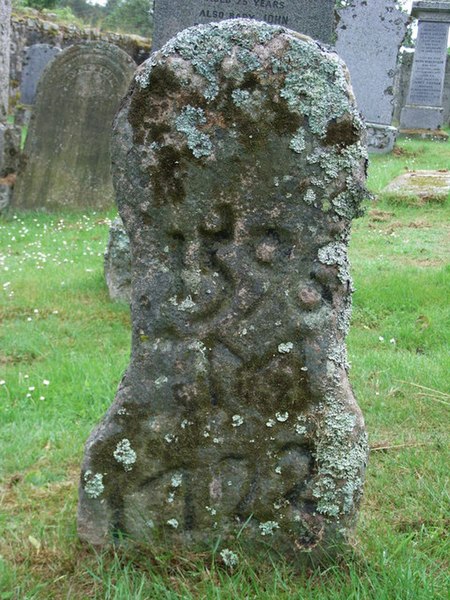The biggest point to come up in the nonfiction sessions? Nonfiction can—and should—be presented as a story. No boring facts, no encyclopedic recitation, and for heaven's sake, no passive voice! When you present information in an engaging fashion, the audience will continue to read and be more likely to retain the information.
 |
| Fact or fiction? Born 1596, died 1722? (source) |
Ever take a class that you hated? Science or history, perhaps? There's a good chance you didn't like it because you were forced to memorize facts. But if that information had been given to you as part of a story—part of a bigger picture—I suspect you would have felt differently about it.
For most of my life, I hated anything having to do with history. Why? Because every history class I took focused on names and dates. It was mind-numbing. There was nothing about it to make me care. So when I started reading Diana Gabaldon's Outlander series and got interested in the history of Scotland, my mom (who loved history) was shocked. She thought I hated history. Well... I did. But not when it was part of an interesting storyline. Funny how that works.
Now the Outlander series isn't nonfiction. It's historical fiction. And that's probably the greatest draw for historical fiction. It's factually correct regarding events that took place in the time period, but with the flexibility of a fictional story to string those events together. Thorough research and accurate portrayal is just as important in a piece of historical fiction as it is in nonfiction.
With nonfiction, you have to be careful. You can't make up quotations; you must have references to back up everything you say (although this is true for historical fiction as well: Carolyn Yoder at Calkins Creek requires documentation for every factual event included in the story). It's easy to get carried away by your efforts to paint a picture and accidentally overstep the bounds. A good editor will call you on it.
With care, writing as a story works for any kind of nonfiction. (biography, nature, history, science). Make it engaging. Make it active. And watch your audience grow.
What are your thoughts about writing (or reading) nonfiction? Does the format matter?

Don't think I could ever write non-fiction. Never thought about the story aspect, but you're right, it does matter.
ReplyDeleteOh yes, it matters! I'm currently working on a non-fiction project for an educational publisher, targeted at 6th graders. I don't want them to close the book because it's just random facts that don't resonate. I want them to keep reading and find the subject as fascinating as I do.
ReplyDeleteI love historical fiction but there is a lot of research involved. I haven't gotten there yet. I do like non-fiction if it's written like a story. Erik Larson comes to mind.
ReplyDeleteAlex: I think writing science fiction is just as hard, and I'd imagine you do a fair amount of research into what might be.
ReplyDeleteBrooke: That sounds fabulous! I think writing engaging nonfiction for kids is harder than writing for adults.
E. Arroyo: Erik Larson is the master!